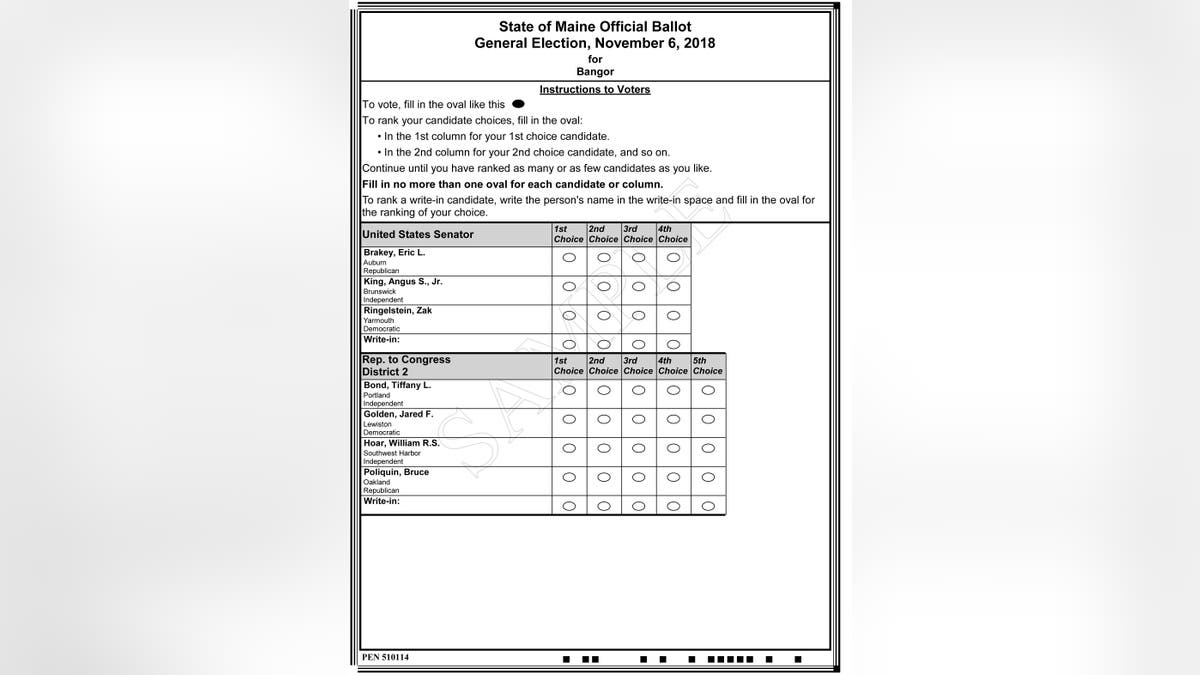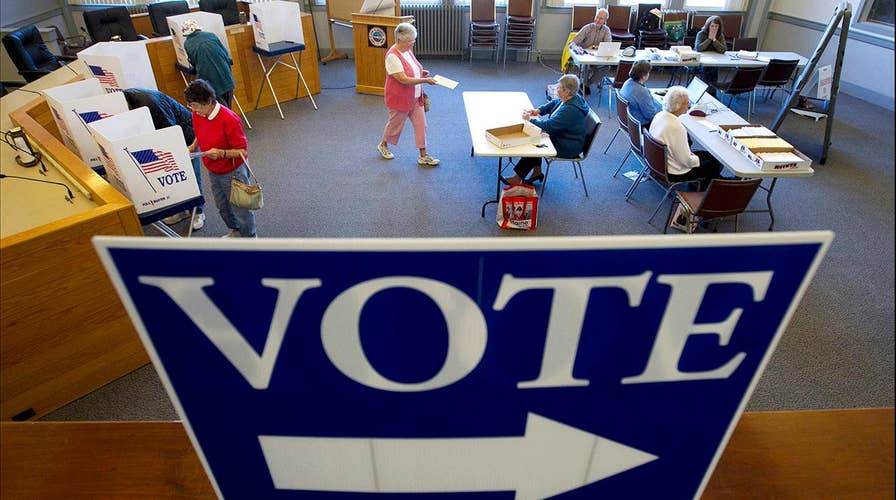Maine set to make electoral history
Maine to become the first in the nation to use ranked choice voting in a statewide primary. Molly Line reports.
When Mainers voted in the June primary, they used a drastically different system by ranking candidates. This ranked-choice voting system will be used again in the general election – but not for all of the races.
Voters will use the ranked-choice system for the U.S. Senate race (with incumbent Angus King up for re-election) as well as the U.S. House races for the 1st and 2nd congressional districts, according to Bangor Daily News.
It will not be used for any other races, including the gubernatorial election.
In the 1st congressional district, incumbent Rep. Chellie Pingree, a Democrat, faces Republican Mark Holbrook and independent Martin Grohman. In the 2nd congressional district, which Fox News has ranked a toss-up, GOP incumbent Rep. Bruce Poliquin faces Democrat Jared Golden and independents Tiffany Bond and Will Hoar.

This image released by the Maine Office of Secretary of State shows a sample ballot for some of the offices up for election in the state's November general election. The ballot offers voters ranked choices for placing their vote using the new system in the November general election. (Maine Office of Secretary of State via AP)
The ranked-choice system works like this: voters rank candidates. A candidate garnering a majority of first-place votes is the winner.
WHAT TO KNOW ABOUT THE RANKED-CHOICE VOTING SYSTEM
If there's no majority winner, the last-place candidate is eliminated and the losing candidate's second-place votes are reallocated for another voting round. The computerized tallies are repeated in a game of political survivor until someone captures a majority.
Maine’s highest court approved the ranked-choice system in April but limited its use in general elections to just federal races because of concerns it runs afoul of the state’s constitution.
Supporters say the system removes the "spoiler" effect and allows voters to cast tallies for a third-party or independent without fear of a wasted vote. That's because their second-choice would be counted if there's no majority winner.
But some Mainers have said they're confused by the new system – and the multiple ways they’ll have to vote on Nov. 6.
FOX NEWS MIDTERM ELECTION HEADQUARTERS
Secretary of State Matt Dunlap said it’s a “distinct possibility” that people might not be aware of the different voting methods before they go to the polls next week.
“That’s not because they don’t care,” Dunlap told Bangor Daily News. “It’s because they have other things to do besides worrying what Matt Dunlap’s working on this November.”
Canvassers for the progressive Maine People’s Alliance also told the newspaper they’ve heard from confused voters as they go door-to-door.
Ranked-choice voting can also take a longer time before a winner is announced. If there’s no first-round winner, then the ballots have to be shipped to the state capital and scanned into computers before additional tallies can be completed.
It took eight days before the winners were announced in the ranked-choice primary elections in June in which extra rounds were necessary.
The Associated Press contributed to this report.





















